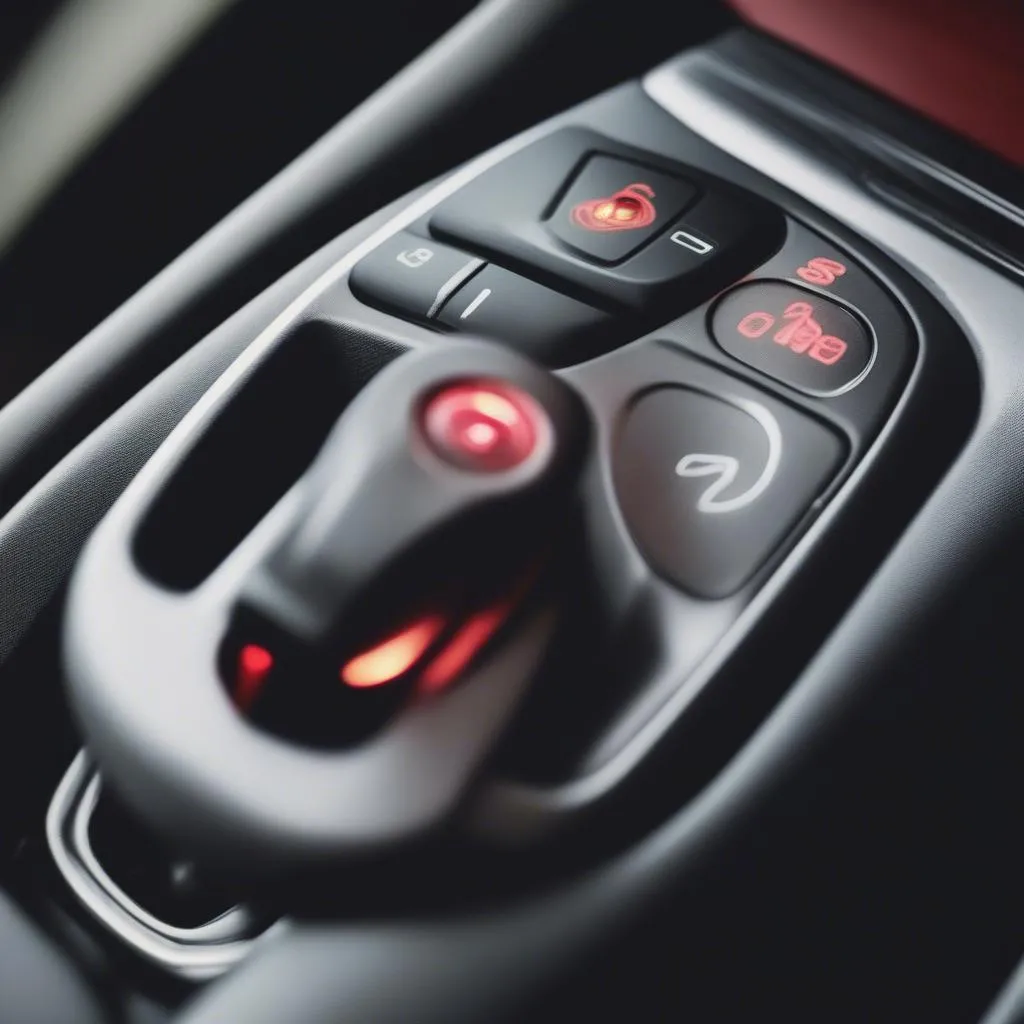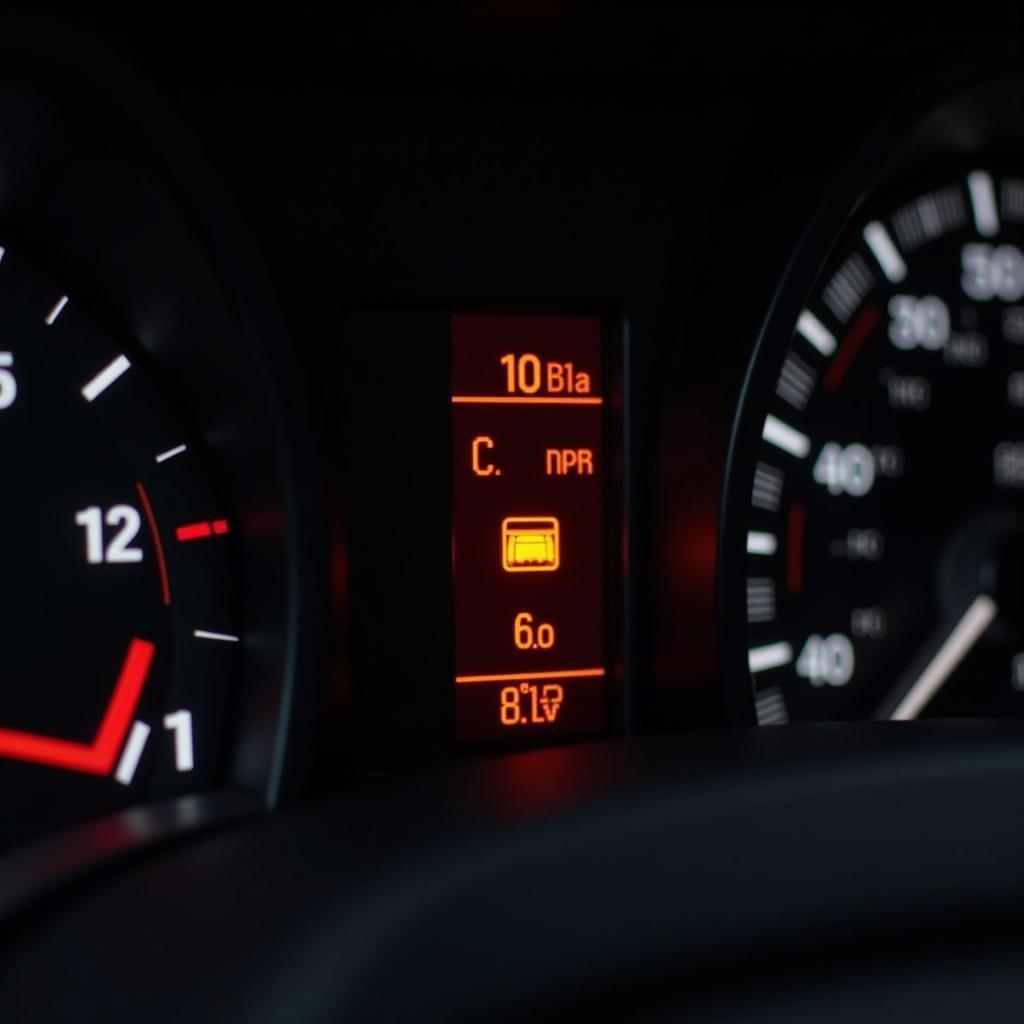The Prius brake warning light is an essential safety feature in your Toyota Prius. When illuminated, it signals a potential issue with your vehicle’s complex braking system, which is comprised of both traditional hydraulic brakes and a regenerative braking system unique to hybrid vehicles.
Understanding why this light turns on and what to do next is crucial for maintaining your safety and the longevity of your Prius. This article provides a comprehensive guide to help you understand the various reasons behind the Prius brake warning light, how to diagnose the issue, and what steps to take to rectify the situation.
Common Reasons Your Prius Brake Warning Light is On
While the illumination of your brake warning light might seem alarming, it’s essential to remember that it doesn’t always signify a critical failure. Here are some of the most common reasons why the light might be on:
- Low Brake Fluid: This is one of the most frequent culprits. Brake fluid is the lifeblood of your braking system, and a low level can severely compromise braking performance.
- Worn Brake Pads: Like any vehicle, your Prius’s brake pads wear down over time. The warning light often serves as a reminder to have them inspected and replaced.
- Faulty Brake Light Switch: This switch activates your brake lights when you press the pedal. A malfunctioning switch can confuse the car’s system, triggering the warning light.
- Issues with the Regenerative Braking System: The Prius, being a hybrid, uses regenerative braking to recapture energy during deceleration. A problem with this system, such as a faulty sensor, can trigger the warning light.
- Problem with the ABS System: The Anti-lock Braking System (ABS) prevents your wheels from locking up during hard braking. A malfunction within this system, such as a faulty wheel speed sensor, can also trigger the warning light.
Diagnosing the Problem
Identifying the specific reason for the brake warning light requires a methodical approach:
-
Check Your Brake Fluid Level: This is the easiest step. Locate the brake fluid reservoir under the hood, usually a translucent container. If the fluid level is low, adding more might temporarily solve the issue. However, it’s crucial to have a mechanic investigate the cause of the low fluid level.
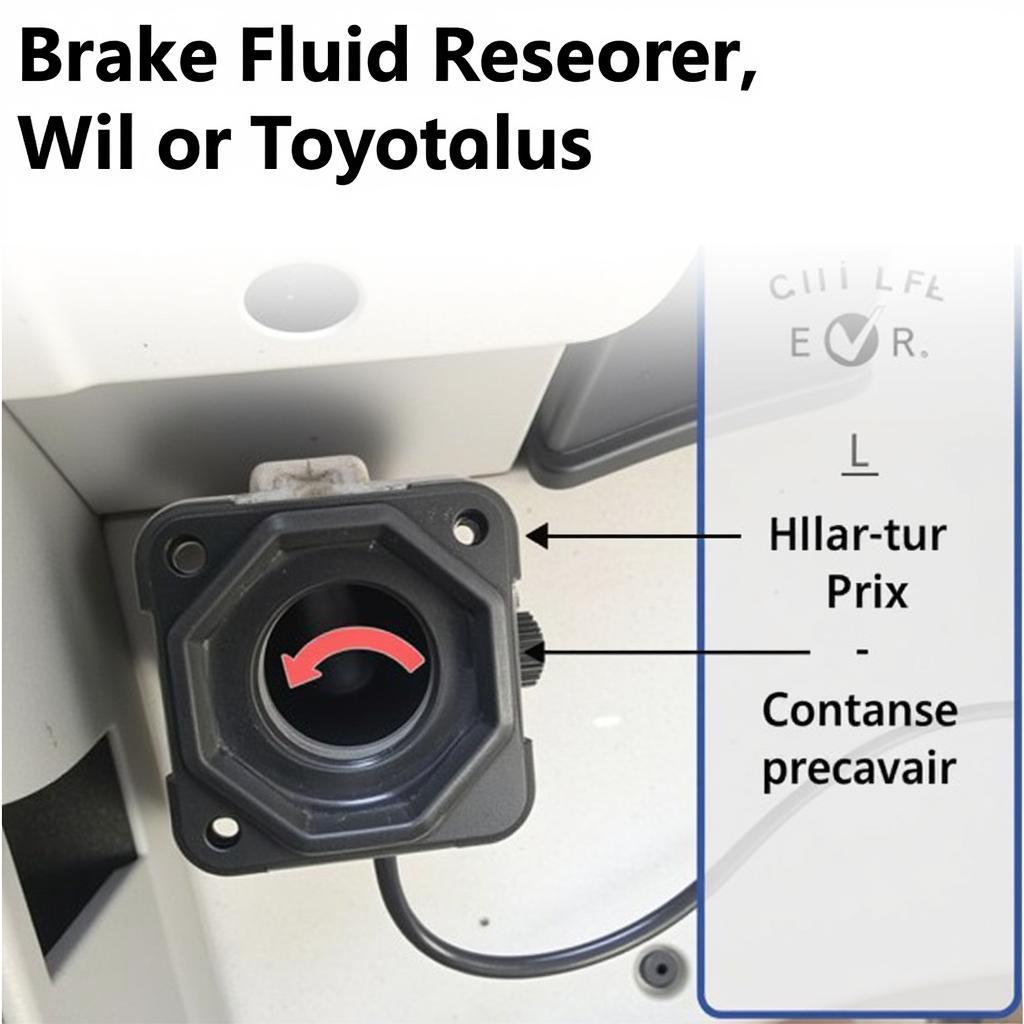 Prius Low Brake Fluid
Prius Low Brake Fluid -
Inspect Your Brake Pads: Worn brake pads often produce a squealing sound when braking. If you notice this, or if your brake pedal feels spongy, it’s best to have your brake pads checked by a professional.
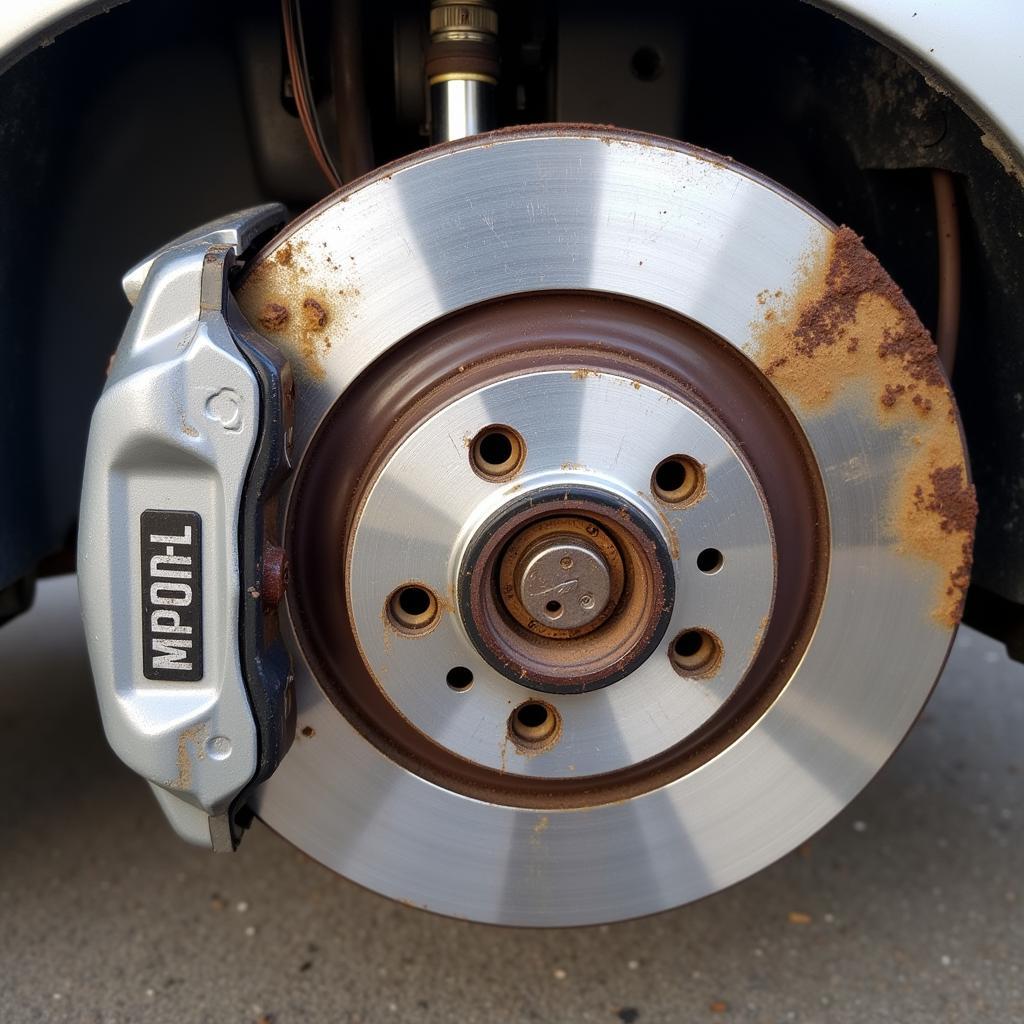 Worn Brake Pads on a Prius
Worn Brake Pads on a Prius -
Consider Your Driving Conditions: Have you been driving in particularly hilly areas or engaging in frequent heavy braking? This can put additional strain on your braking system and might trigger the warning light even if there isn’t a major fault.
What to Do When the Light Turns On
-
Don’t Panic: While a brake warning light is serious, it doesn’t necessarily mean your brakes are about to fail.
-
Pull Over Safely: If possible, pull over to a safe location and assess the situation.
-
Check Your Owner’s Manual: Your Prius’s owner’s manual contains valuable information specific to your model year and might offer additional troubleshooting steps.
-
Contact a Qualified Mechanic: If the brake fluid level is fine and you suspect a more serious issue, it’s best to err on the side of caution and have your car towed to a trusted mechanic specializing in Toyota Prius vehicles.
“When it comes to brakes, early detection is key,” says John Smith, Senior Automotive Technician at ABC Auto Repair. “Ignoring a brake warning light can lead to more significant and costly repairs down the line. Don’t wait for a minor issue to become a major problem.”
Remote Diagnostics and Software Solutions
In today’s technologically advanced world, remote diagnostics and software solutions are becoming increasingly prevalent in the automotive industry. For certain issues related to your Prius’s brake warning light, a qualified technician might be able to:
-
Remotely Diagnose the Problem: Using specialized equipment, a technician might be able to access your Prius’s onboard computer system remotely to diagnose the cause of the brake warning light.
-
Provide Software Updates or Recalibrations: Sometimes, a simple software update or recalibration of your Prius’s braking system can resolve the issue, especially if it’s related to the regenerative braking system or the ABS.
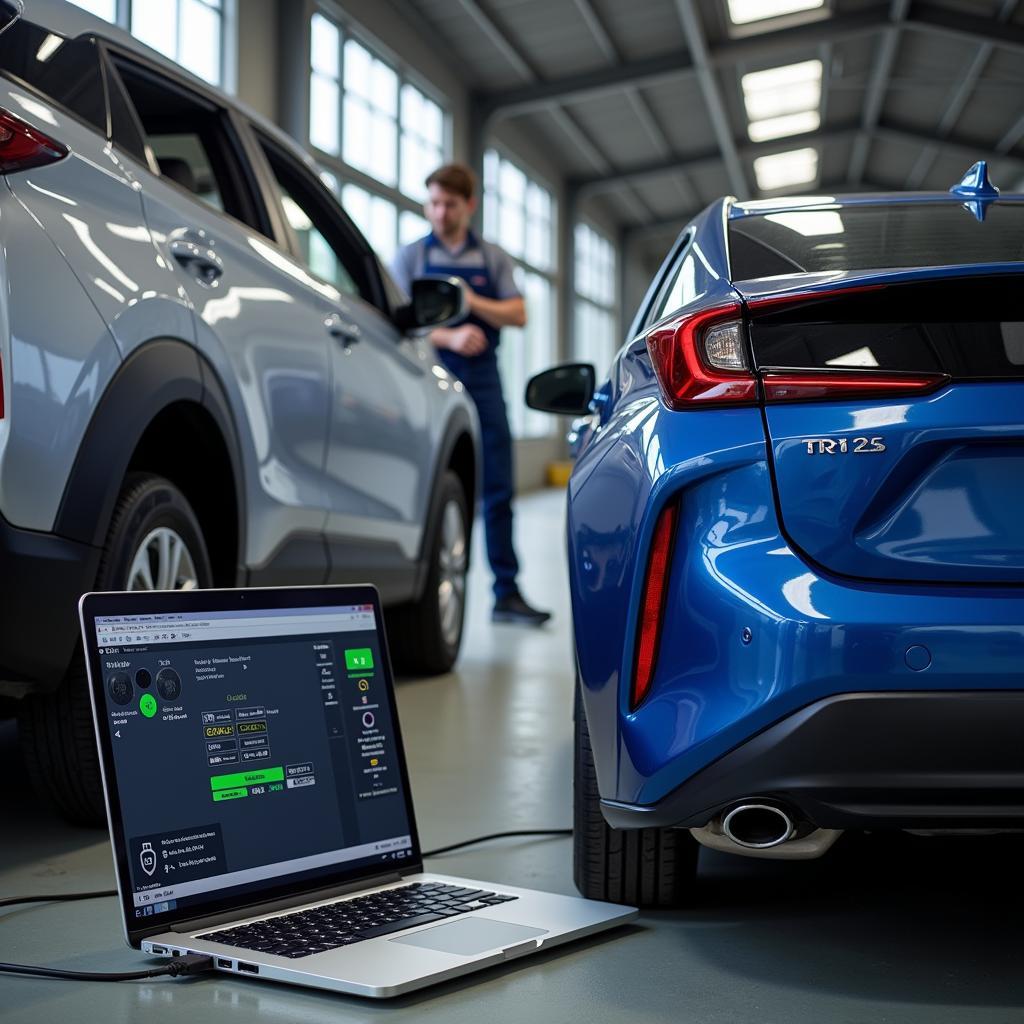 Remote Diagnostics for a Toyota Prius
Remote Diagnostics for a Toyota Prius
This approach offers a convenient and often faster solution compared to traditional in-person diagnostics.
Preventing Future Brake Warning Light Issues
Proactive maintenance is key to preventing future brake warning light issues:
- Regular Brake Fluid Checks and Changes: Refer to your owner’s manual for the recommended brake fluid service intervals.
- Timely Brake Pad Replacements: Don’t wait for your brake pads to wear down completely. Schedule regular brake inspections with a qualified mechanic.
- Address Warning Lights Promptly: Ignoring any warning light can exacerbate the issue and lead to more costly repairs later.
By following these preventive measures and addressing any concerns promptly, you can help ensure the optimal performance and safety of your Toyota Prius’s braking system.
FAQ
Q: Can I drive my Prius with the brake warning light on?
A: While it might be possible to drive for a short distance, it’s strongly advised against it. Driving with a potential brake issue significantly compromises your safety and can lead to further damage.
Q: Is it safe to add brake fluid myself?
A: Yes, you can top off your brake fluid if you’re comfortable doing so. However, it’s essential to use the correct type of brake fluid specified in your owner’s manual.
Q: How much does it cost to fix a Prius brake warning light issue?
A: The cost varies greatly depending on the underlying cause. It could be as simple as a brake fluid top-up or as complex as replacing a faulty ABS module.
Q: How often should I have my Prius’s brakes inspected?
A: It’s generally recommended to have your brakes inspected at least once a year or every 12,000 miles, whichever comes first.
Q: Can I reset the brake warning light myself?
A: While it’s technically possible to reset the light, it’s not recommended unless you’ve addressed the underlying problem. Simply resetting the light without fixing the issue could be dangerous.
Remember, your Toyota Prius’s brake system is intricate and vital for your safety. Always err on the side of caution and consult with a qualified mechanic if you have any concerns about your vehicle’s braking performance or if the brake warning light persists.

